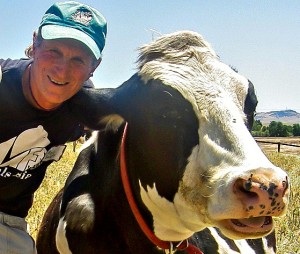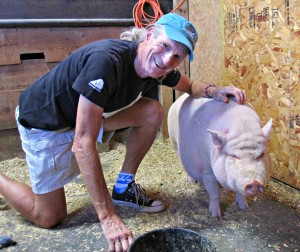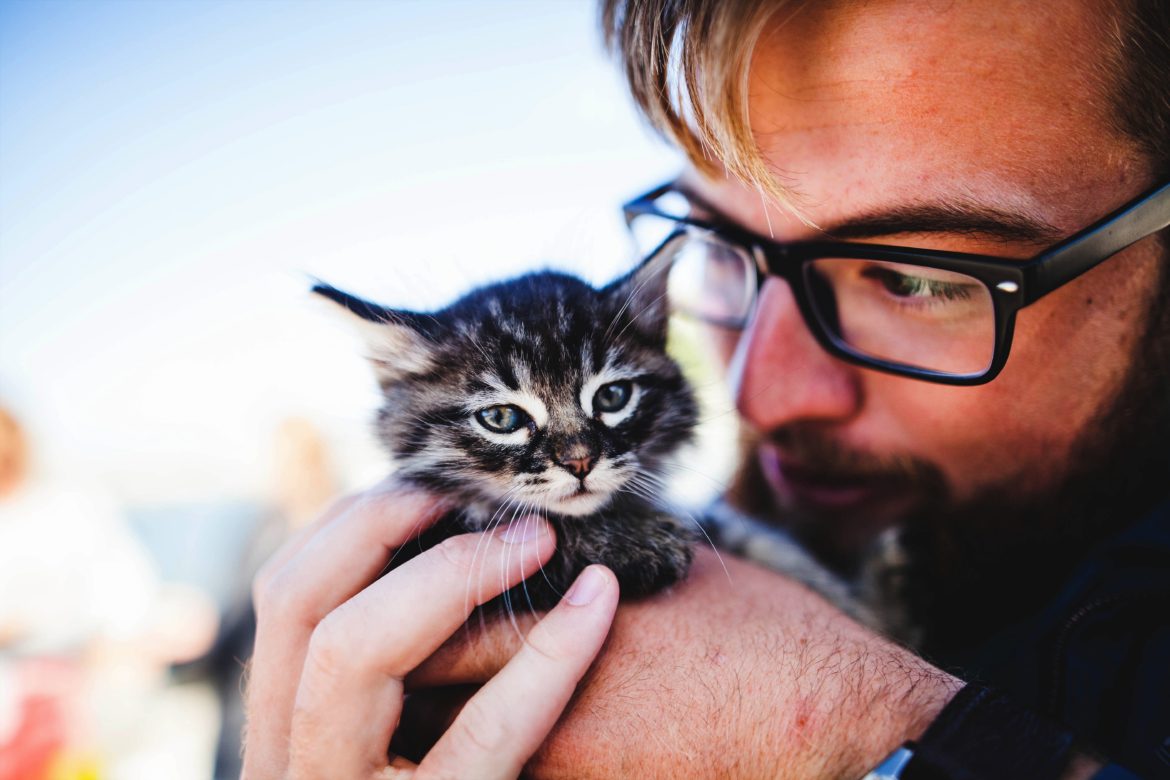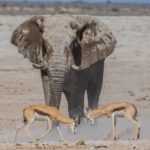Professor Marc Bekoff, author, award winning scientific researcher and co-founder of Ethologists for the Ethical Treatment of Animals, discusses the cognitive & emotional world of animals, the role of religious scholars in promoting compassionate care and taking practical steps towards peaceable co-existence with all creatures.
Tell us about yourself and how you became interested in animals
 I always attribute my compassion for non-human animals to my mother’s warm and compassionate soul, and my positive thinking, as well as keeping my dreams alive to my incredibly optimistic father. In retrospect, I know I was very lucky to be born into a home where compassion, playfulness, and laughter were highly valued, as was hard work. My parents told me that when I was around 3-years-old I started asking them what animals—especially the dogs, squirrels, birds, and ants with whom I had contact outside of our apartment in Brooklyn (New York) —were thinking and feeling. They said I was constantly “minding animals”; not only was I attributing minds to them, but I also was very concerned with how they were treated and always said we also needed to mind and care for them because they couldn’t do it for themselves. Many, many years later I published a book in 2002 aptly called Minding Animals. My concern for individual animals has continued on for decades as I work in the rapidly developing field called compassionate conservation for which the guiding principles are “First do no harm” and the lives of every individual matter – See Compassionate Conservation Meets Cecil the Slain Lion.
I always attribute my compassion for non-human animals to my mother’s warm and compassionate soul, and my positive thinking, as well as keeping my dreams alive to my incredibly optimistic father. In retrospect, I know I was very lucky to be born into a home where compassion, playfulness, and laughter were highly valued, as was hard work. My parents told me that when I was around 3-years-old I started asking them what animals—especially the dogs, squirrels, birds, and ants with whom I had contact outside of our apartment in Brooklyn (New York) —were thinking and feeling. They said I was constantly “minding animals”; not only was I attributing minds to them, but I also was very concerned with how they were treated and always said we also needed to mind and care for them because they couldn’t do it for themselves. Many, many years later I published a book in 2002 aptly called Minding Animals. My concern for individual animals has continued on for decades as I work in the rapidly developing field called compassionate conservation for which the guiding principles are “First do no harm” and the lives of every individual matter – See Compassionate Conservation Meets Cecil the Slain Lion.
As a youngster, I felt I was being “un-wilded” by having to go to school and sit inside all day; I fought the un-wilding and “re-wilded” myself by spending as much time as I could outside. I liked to take walks and I talked to animals and really felt they heard and understood me. I listened to them as well. I seemed to have a way with them; animals who, I’m told, didn’t warm up to others, really warmed up to me. One fond memory is that I felt more comfortable with the animals than with most people. I could never get too much time outside and this has stuck with me throughout my life.
Through your research, what have you discovered about the psychological world of animals and what common bonds do we share?
I’ve discovered (along with other colleagues) that many non-human animals have very rich and deep emotional lives and that they care about what happens to them, their families, and their friends. They have a point of view, and just like us, they want to live in peace and safety, absent fear, pain, suffering, and abuse. In my essays for Psychology Today I try to keep up with what we’re discovering in the field called cognitive ethology (the study of animals minds and what’s in them). It seems like every day we’re learning something about the rich and deep cognitive, emotional, and moral lives of the fascinating animals with whom we share our magnificent planet. This information must be used to make the lives of other animals much better.
Has the emotional complexity of animals influenced your personal lifestyle choices?
Very much so. I chose to become vegetarian, and then vegan, based solely on ethical concerns for the animals whom I was previously choosing to eat or wear. Note that I use the word whom, not what, because so many “food animals” were sentient beings, not disposable objects.
Can Christianity, together with modern scientific research, work to challenge the West’s typically anthropocentric and utilitarian regard for animals?
Without a doubt. I see the incredible value of religious scholars and those working for various religions playing a huge role in helping people make faith-based compassionate decisions that do not center on us. I like to say, “It’s not all about us,” and we should value other animals for whom they are, not for what we want them to be and what they can do for us.
Is compassionate living all about “giving things up” or are there in fact things for humanity can gain?
 Not at all. While people might be “giving up” eating other animals as they change their meal plans, or choose to change whom they wear or whom they seek out for entertainment, I don’t see this as any sort of sacrifice at all. We all want to live in peace and safety, humans and nonhumans alike, and be respected for whom we are. Furthermore, we can serve as models for future generations, because our children and theirs will inherit the world we leave them and we should do our best to leave them a peaceful world in which coexistence is the rule, rather than the exception.
Not at all. While people might be “giving up” eating other animals as they change their meal plans, or choose to change whom they wear or whom they seek out for entertainment, I don’t see this as any sort of sacrifice at all. We all want to live in peace and safety, humans and nonhumans alike, and be respected for whom we are. Furthermore, we can serve as models for future generations, because our children and theirs will inherit the world we leave them and we should do our best to leave them a peaceful world in which coexistence is the rule, rather than the exception.
We also really need a heartfelt revolution in how we think, what we do with what we know and how we act. Re-wilding (undoing the un-wilding that begins around the time we’re born) can be a very good guide, as I stress in my book Rewilding Our Hearts: Building Pathways of Compassion and Coexistence. The revolution has to come from deep within us and begin at home, in our heart and wherever we live. I want to make the process of rewilding a more personal and spiritual — some say a more religious — journey and exploration that centres on bringing other animals and their homes, ecosystems of many different types, back into our hearts.
How can today’s Christians take practical steps to widen their circles of compassion to include animals?
I would strongly suggest that Christians look at what we know about the cognitive and emotional lives of other animals, along with the wanton and wilful decimation and loss of magnificent and irreplaceable habitats, and that we use what we know to make positive changes that will benefit other animals as well as ourselves. We also need to be more sensitive to other cultures and get out of the narrow “western-centric” mode of thinking and acting.
I travel a lot and meet numerous people worldwide who are working hard on behalf of other animals. In addition to my inborn optimism (thanks dad!) I remain very optimistic that if we all work together, we can right many of the wrongs as we move forward in what’s called the anthropocene, the age of humanity. Clearly, the age of humanity is not very humane. But, I am stubbornly optimistic that there still is a lot of good we all can do by working together in a challenging and demanding world if we take the focus off of ourselves and appreciate just how interconnected humans and nonhumans really are.




